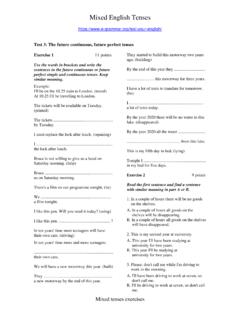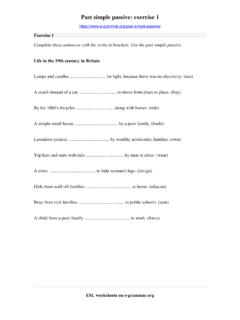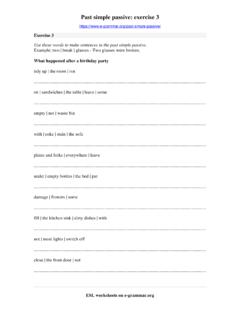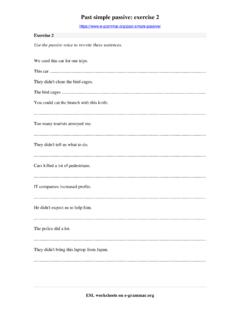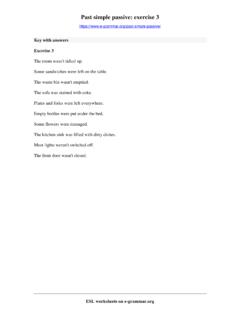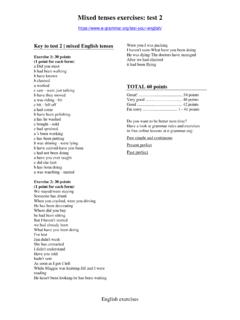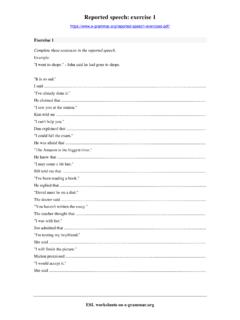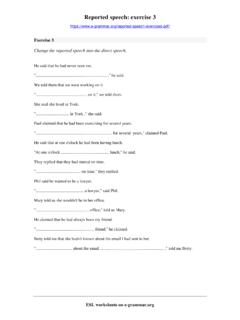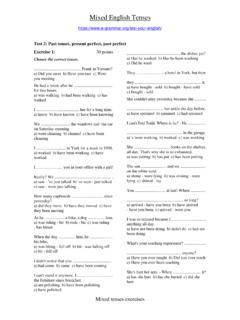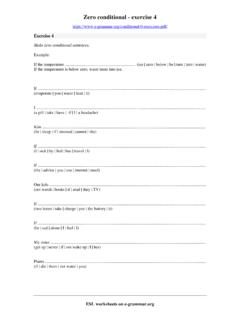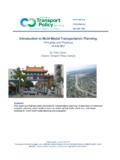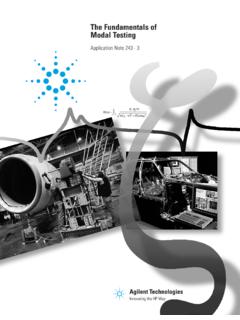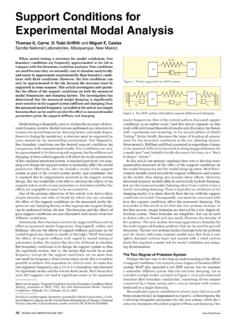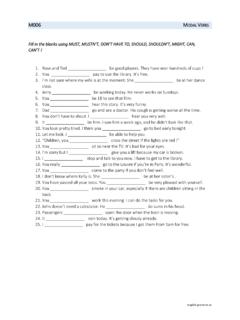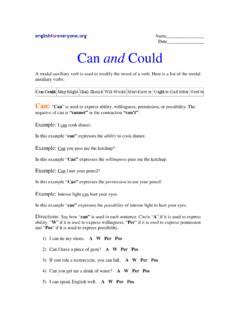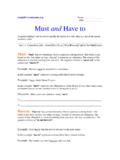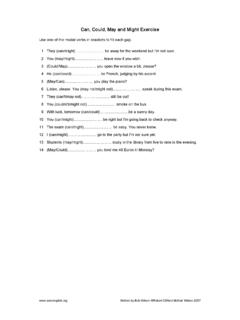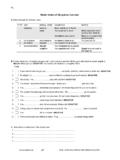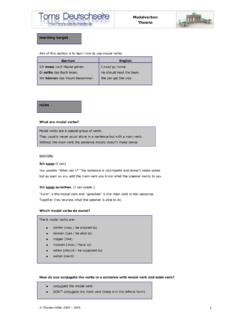Transcription of English grammar rules | Modal verbs can, may, must
1 English grammar Modal verbs can, may, must We use the Modal verbs can, may, must in the English language to express various meanings - ability, possiblity, permission, attitudes, opinions, etc. Modal (auxiliary) verb CAN 1. Can is used to describe the ability to do something. I can swim very well. Can he can speak English fluently? - No, he can't. We cannot sing at all! 2. Can expresses the possibility to do something. We can go to the seaside at last. Our holidays start next week. 3. We use can to say that something is probable. It can be John. He has blond hair and he is wearing glasses. 4. Can expresses the permission to do something. Why not?
2 You can marry her. She is a nice girl. Modal (auxiliary) verb MAY 1. May is used for permissions. You may borrow my car. I won't need it. May I smoke here? - No, you can't, I'm sorry. 2. May is used for expressing probability or prediction. They may call tomorrow. I hope so. The main difference between may and can is in style. May is more formal than can. Can is typical of spoken English . 3. The opposite of may is must not or may not. May I smoke here? - You mustn't smoke here. (strong prohibition) - You may not smoke here. (more polite, very formal) - You can't smoke here. (informal spoken English ) Modal (auxiliary) verb must 1. must is used for strong obligations.
3 It is personal, because it shows the speaker's opinion or will. I must clean my teeth. I want to be healthy. You must go there. And do it right now! 2. must expresses strong recommendation. You must see it. It's the best film I've ever seen. 3. We use must to express certainty of the speaker. They must be at school by now. It's already 9 o'clock. 4. The opposite of must is need not. Mum, must I wash up? - No, you needn't. I've already done it. must not has a different meaning. It is used to express prohibition that involves the speaker's will. We mustn't come late today. Or the teacher will be very angry. He mustn't enter this room. It is dangerous.
